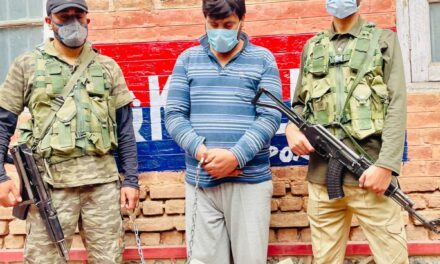![]()
Conducting fire audits made entirely online, says Er Aqib Hussain
Rehan Qayoom Mir
Srinagar, Jul 03 (KNO): The Fire & Emergency Services (F&ES) Department in Srinagar has expanded the city’s firefighting readiness with a network of 29 fire stations.
Speaking with the news agency—Kashmir News Observer (KNO) at his office here, Er Aqib Hussain, Assistant Director and Commandant Srinagar City, said that the widespread distribution of fire stations aims to ensure rapid response times, essential for reducing damage and protecting lives.
“With 29 fire stations spread across Srinagar, the department is equipped to manage various fire emergencies,” he said.
The headquarters at Batamaloo classified as an A-category fire station functions as the central hub, housing multiple types of fire tenders, including water tenders, foam tenders, and dry chemical power tenders.
“We assess the type of fire and its cause before dispatching the appropriate fire tenders,” Er Hussain said. “Water tenders are used for fires involving solid substances in residential houses or other structures, foam tenders for petrol or diesel fires, and dry chemical power tenders for electrical fires or transformer explosions.”
With the rise of high-rise buildings in Kashmir, the Assistant Director said the department has added three hydraulic platforms to its equipment to address fires in taller structures. Firefighting stations have also been established in water-bound areas such as Nehru Park, improving the department’s reach and effectiveness, he said.
On the recent Bohri Kadal fire incident, where a mosque and over ten houses were gutted, Er Hussain emphasised the importance of public cooperation in firefighting efforts. “Multiple cylinder explosions exacerbated the fire, highlighting the need for preventive measures. Public cooperation is crucial for us to act swiftly and efficiently during fire incidents,” he said.
To enhance safety, he said the department has made the process for conducting fire audits entirely online. “Agencies, schools, and other institutions can complete the initial steps by filling out forms and uploading necessary documents,” Er Aqib said, adding that a special fire audit drive has been launched for religious places, including shrines, mosques, temples and gurdwara.
“The results of these audits will be shared with the state authorities upon completion,” he added—(KNO)
























